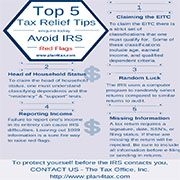New Forms May Holdup Your 2014 Tax Refund
 Author: Keith Huggett
Author: Keith Huggett
The IRS has added a new form to be completed for tax year 2014. If you were successful in signing up for healthcare benefits required by the Affordable Care Act, you are now required to send in form 1095-A, which you can get from the Health Insurance Marketplace. Please be aware that this example is a draft, not the form to file. Form 1095-A will list all of the individuals in your household who receive the benefits and how much the government has spent subsidizing their premiums.
The Health and Human Services Department (HHSD) will be in charge of issuing the forms. The lack of confidence in the HHSD primarily stems from the difficulties associated with the ACA website. Justifiably, tax professionals are concerned about their ability to have all the forms out and in the hands of the millions of Americans by the January 31st deadline.
1095-A provides information you need to complete Form 8962, Premium Tax Credit (PTC). You must complete form 8962 and attach it to your tax return if you wish to claim the Premium Tax Credit or if you received premium assistance through advance credit payments. If you or your family members enrolled in more than one qualified insurance plan then you will receive a Form 1095-A for each plan.
States who operate their own health insurance marketplaces are also required to issue their own forms to those receiving their benefits. Though the biggest responsibility falls on the shoulders of the HHSD to get the forms to the individuals residing in the 36 states that it serves.
Remember, this form only applies to those Americans who were able to sign up for health insurance through the healthcare exchange. If you obtained your health insurance elsewhere, this does not apply to you. If you have any questions regarding this form, or your tax return, please contact the qualified tax professionals at The Tax Office, Inc.

 Author:
Author:  Author:
Author:  Author:
Author:  Author:
Author:  Author:
Author:  Author:
Author:  No matter how you slice it,
No matter how you slice it, 
 Ever lost a significant chunk of critical financial data stored on your hard drives or network? If so, you know how difficult and time-consuming it was to recover. You may even have lost sales during that period because of your information breakdown.
Ever lost a significant chunk of critical financial data stored on your hard drives or network? If so, you know how difficult and time-consuming it was to recover. You may even have lost sales during that period because of your information breakdown.


